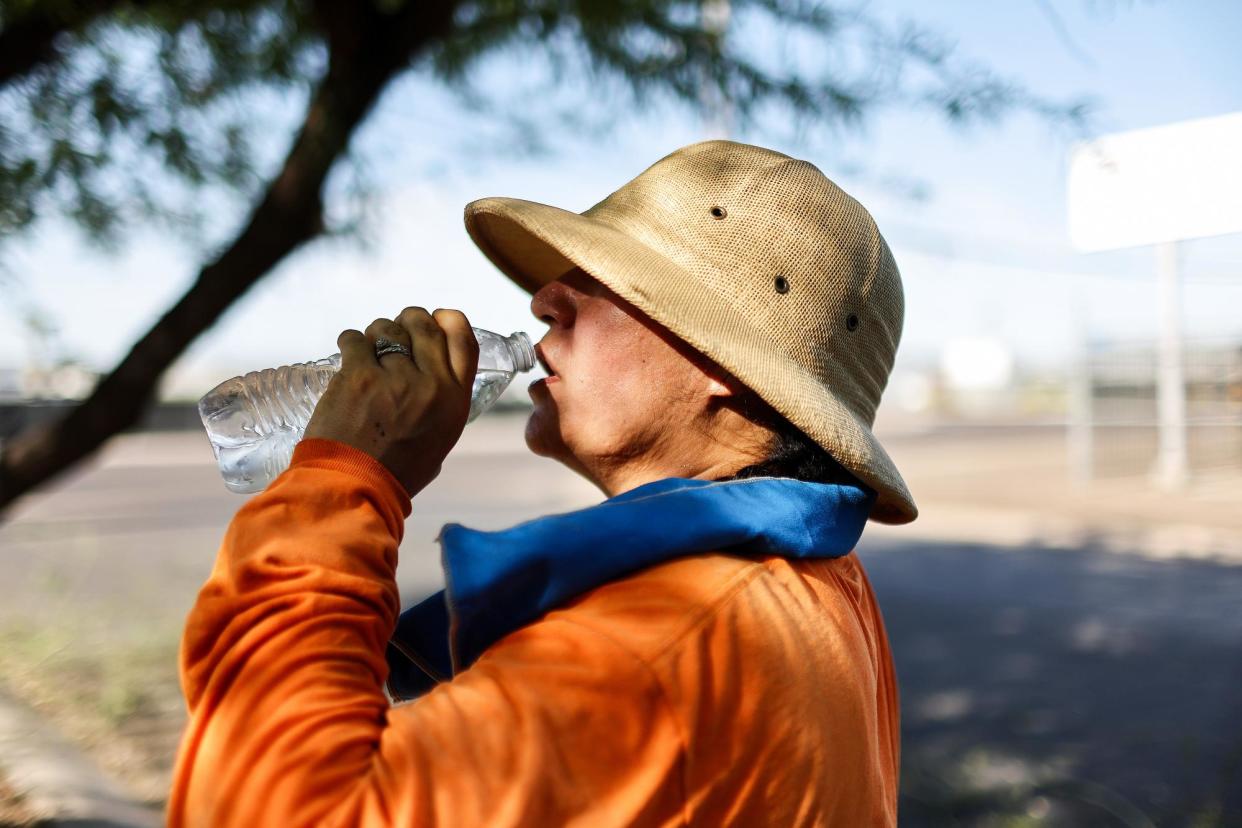Phoenix passes landmark rule requiring heat protection for outdoor workers

Phoenix, Arizona, passed a landmark rule this week that will provide protections from extreme heat for thousands of outdoor workers in the hottest US city.
In a unanimous 7-0 vote, Phoenix city council passed an ordinance on Tuesday requiring employers to provide access to rest, shade, water and air conditioning, as well as training on recognizing signs of heat stress. The rule applies to city contractors and their subcontractors who work outdoors, including construction and airport workers.
Related: Deadliest year on record as Phoenix heat fatalities rise by 50%
“This heat safety ordinance will change my life,” said Filiberto Lares in a statement. He’s been working at Phoenix’s Sky Harbor airport for the past 11 years, delivering food to airplanes. “In the summers, when the temperatures reach extremes, the asphalt on the tarmac is even hotter.”
The rule would also ensure access to air conditioning in the driver compartment of vehicles by no later than 1 May 2025 and would apply to an estimated 10,000 workers under city contracts, according to deputy city manager Lori Bays.
“Phoenix is recognizing the need to take action to protect the most vulnerable,” said Juan Declet-Barreto, climate vulnerability researcher at the Union of Concerned Scientists. “With an intense heat island effect, there’s very little vegetation and an unequal distribution of shading and trees that can help lower exposure to temperatures.”
People of color are disproportionately impacted by extreme heat. More than 40% of all outdoor workers in the US are Black or Hispanic, while making up roughly 32% of the total population.
Last summer, Phoenix endured record-breaking heat, seeing 31 days straight with temperatures over 110F (43C). In 2023, heat killed 340 people in Phoenix and 645 people in Maricopa county. Three out of four fatalities took place outdoors, and there’s currently no data on work-related heat deaths.
“It’s hard to even describe just how intense the heat is here,” said Katelyn Parady, a Phoenix-based representative of the National Council for Occupational Safety and Health. “Workers talk about getting dizzy, throwing up, working themselves into a state of exhaustion, and there were no specific protections until now.”
One of the groups that opposed the ordinance is the construction industry. Ahead of the hearing, the Arizona General Contractors Association issued a letter calling the regulations “redundant” in the face of federal regulations that would take priority over city ordinances.
However, there are currently no federal standards that protect outdoor workers from extreme heat. The Phoenix ordinance comes amid tightening restrictions on setting local heat protections in Florida, which passed a pre-emptive bill that bans heat standards earlier this month.
“As we prepare for this coming summer, we need to think about those who work outside. They need breaks. They need to stay hydrated,” said Councilwoman Laura Pastor, who supported the ordinance. “Heat mitigation and respite is essential to life in Phoenix, and this is a crucial step towards prioritizing the safety and wellbeing of our essential workers.”
